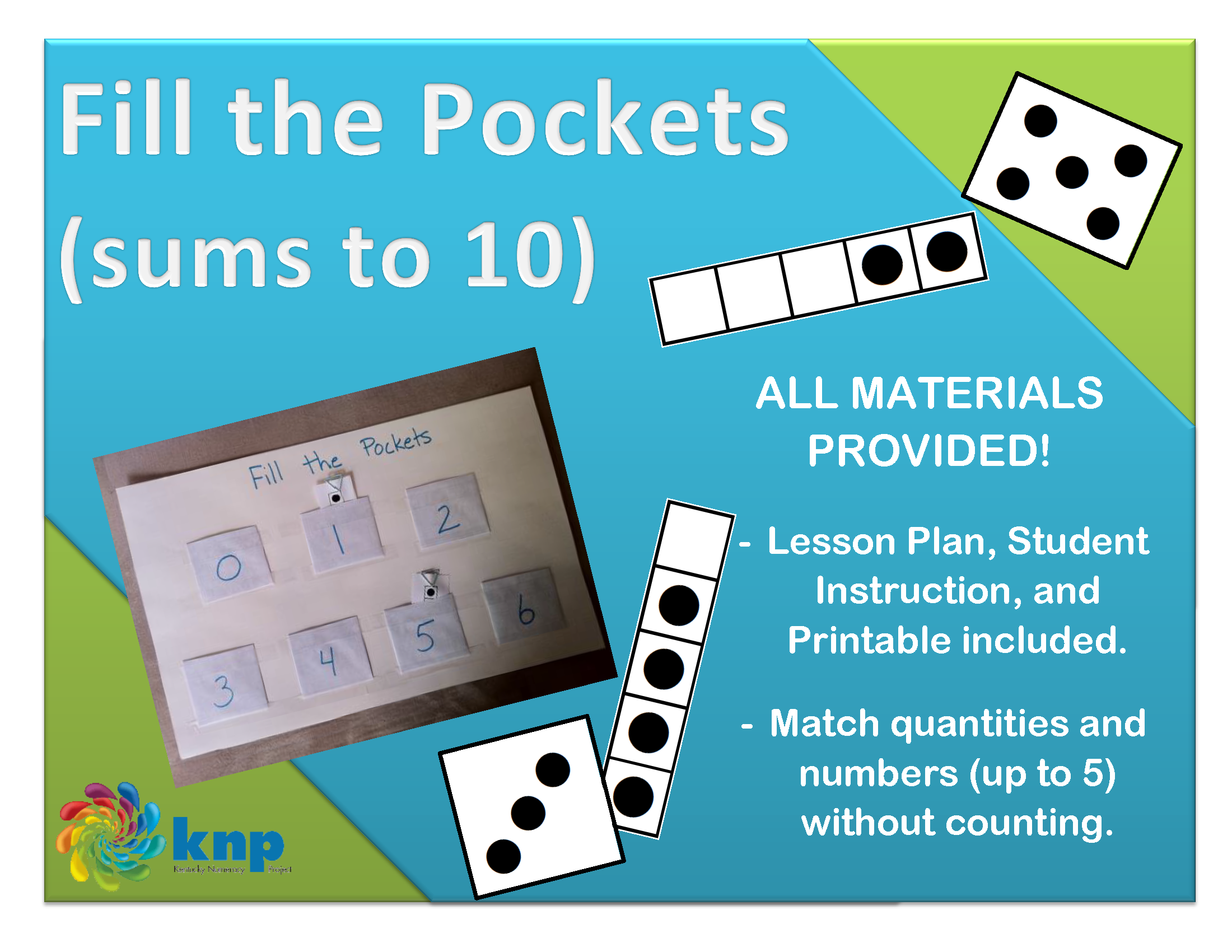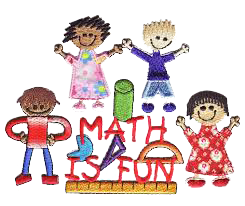“Fill the Pockets (sums to 10)”
KNPIG ID #S 2203.2
What's this activity about?
This activity challenges your child to recognize different ways to combine numbers one through five to match equal totals up to ten. You and your child will find pairs of quantities that add up to ten and then place them into pockets with a matching total. Kids love to make stuff and get creative. This is a great way to use that product to practice important math skills.
What materials do we need?
Printable dot cards with 1-5 dots, 3 or more sets OR number cards labeled 1-5, 3 or more sets Paper clips Game Board you create: Create the pockets by sealing a letter sized envelope and cutting in half. You will need four envelopes. Then attach the pockets to a larger piece of paper or piece of poster board. Each pocket should be clearly labeled – “less than 5”, “5+0”, “5+1”, “5+2”, “5+3”, “5+4”, “5+5”. Then finish the game board with non-distracting decorations.

How do we play?
Play with your child or children. More than one player is recommended.
Mix dot cards/numeral cards and stack in a pile. One player will draw two cards from the pile, add them together, paper clip the cards together, and place in the pocket on the game board that equals the same total. After using all the cards, have your child predict what combinations of quantities will be in each pocket. For example, for pocket “5+2” your child may say- four dots with three dots make the same thing, or one dot with six dots is also the same total. Then you can pull them out and check them
Where’s the Math?
This activity goes along with math your child is learning in school. Your child is practicing decomposing numbers into pairs in more way than one. So they are working to understand that many different combinations can make a single combination. They are also extending earlier learning with the concept that numbers are composed of many different combinations of values to larger numbers and more combinations. When they advance in their math practices this concept becomes very important. As your child becomes more proficient with the dot cards, it is time to try this activity with the number cards. An extra process is happening in their brain when they must picture the quantity in their head just by reading the numeral, instead of instantly having that picture with the dot cards.
Things to Think About:
As you use this activity with kids, remember to be patient. Sometimes it’s hard to not help them along if they are having a hard time finding the total for quantities. If they seem like they are guessing, encourage them to count the dots until they become more comfortable combining those quantities. When they practice making different quantities that add together to get the same value, it helps them become more familiar with figuring out all the combinations within 10. When first playing with your child, narrating your own actions will help your child with the game play. As you progress, try to notice what thinking strategies your child is using to combine and predict pairs. Ask them questions to get them thinking deeper- “What other pair has the same value as 5+1?” or “How can you get from three dots to ten dots? Is that a pair we can use?” Giving kids a chance to figure math out for themselves gives them a deeper understanding of what they are learning.
Feedback
Send us your thoughts and ideas about these activities. Email the KCM

